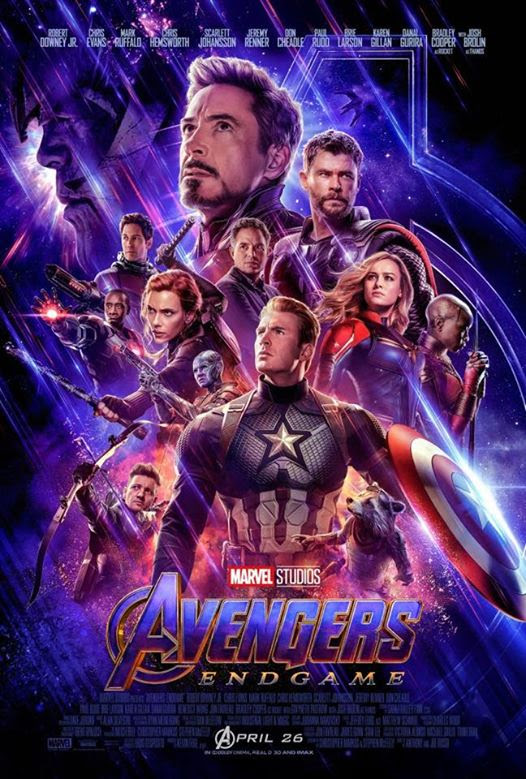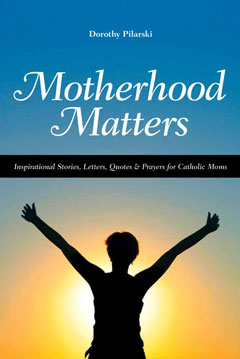
This past weekend, “Avengers: Endgame” delivered the biggest opening weekend of all time, grossing an estimated $350 million over the first three days of its domestic release; and an incredible $1.2 billion at the worldwide box office in its first five days of release. Given the film’s enormous cultural status and the fact that it’s essentially the climax of the Marvel Cinematic Universe (MCU) thus far, I thought it would be a good opportunity to reflect on some of the significant Christian themes contained therein.
**WARNING: MAJOR SPOILERS AHEAD**
The movie is set three weeks after the main villain, Thanos, uses the six so-called “Infinity Stones” — each of which represents one of six singularities stemming from the origin of the universe itself, including the Space Stone, the Reality Stone, the Power Stone, the Mind Stone, the Time Stone and the Soul Stone — in the context of a special glove called the “Infinity Gauntlet” to wipe out half the universe by simply snapping his fingers.
At this early stage of the film, the remaining Avengers locate Thanos and attempt to retrieve the Stones with the intention of using them to undo the destruction he has wrought, only to find that Thanos has already destroyed the Stones specifically to avoid their future use.
PART ONE: IRON MAN AND MARY MAGDALENE
Five years later, Scott Lang (a.k.a. Ant-Man) (played by Paul Rudd) escapes a mysterious dimension called the quantum realm in which he had been trapped during the post-credits scene of “Ant-Man and the Wasp” (2018). After realizing that he had only experienced a time lapse of five hours instead of five years, Scott theorizes that the quantum realm can be used to effect time travel which would, in turn, enable the Avengers to retrieve the Stones from the past and use them to restore life throughout the universe. Several of the Avengers agree with the plan in theory, but realize that they will first need the scientific expertise of Tony Stark (a.k.a. Iron Man) (played by Robert Downey Jr.) to figure out how to stabilize travel within the quantum realm.
Initially, Stark refuses to help them because he and his wife, Virginia “Pepper” Potts (played by Gwyneth Paltrow) now have a five-year old daughter named Morgan (played by Alexandra Rachael Rabe), and Stark refuses to risk losing what he has for the possibility of something better, greater and more.
As I’m writing this article, we’re still in the Easter season, which is fitting because the Gospel text which perhaps most corresponds to this particular part of the movie is that iconic post-Resurrection account of Mary Magdalene at the empty tomb (Jn 20:11-18). The scene begins with much confusion on Mary’s part as she struggles to recognize that she is in the presence of the resurrected Christ, but culminates in an enormously cathartic experience after the Lord asks her several probing questions are meant collectively to awaken her deepest desires: “Woman, why are you weeping? Whom are you looking for” (Jn 20:15)?
In a certain sense, what the Lord is doing here is helping Mary let go of the idea that what she really wants is to simply anoint the dead and wounded body of the crucified Jesus; and accept the reality of that which she had never thought possible, but which most corresponds to the deepest desires of her heart: the glorious and risen Christ in her very midst.
The same principle applies here with Tony Stark. In order for him to discover that which he really wants — namely, a definitive sense of peace and reconciliation for himself and the whole world — he has to find the courage to let go of this provisional solution he has come up for himself to ease his immediate sense of pain and woundedness.
PART TWO: FINDING PEACE BY SHARING IN GOD’S SALVIFIC MISSION
From a Biblical perspective, Stark’s internal struggle in this regard further speaks to the fact that, despite the recurring temptation we all have in the midst of our own suffering in this life to “turn inwards” and assume a stance of self-preservation — in the sense of trying to find our sense of peace and rest through clinging, having, controlling or possessing — to the exclusion of a seemingly superfluous concern for our neighbour, we are invited instead to “focus outward” in the sense of really giving of ourselves beyond our apparent natural limits for the sake of God and other people — mindful of the fact that, whenever we freely choose to give ourselves away to the point of sacrifice, God’s life in us “will become [in us like] a spring of water welling up to eternal life” (Jn 4:14).
It’s no coincidence that Stark decides finally to assist the Avengers in their mission after having a heartfelt talk with his wife, which culminates in the realization that the peace and rest that he’s ultimately searching for is to be found not so much in a particular set of external circumstances which would only mildly satisfy the deep longings in his heart; but rather, in a sincere gift of himself in the service of others.
In theological terms, perhaps we might say that there is the realization that the deepest desires of his heart can only be satisfied by a deep sharing in God’s blessed life (CCC 1), which is defined not so much by stagnation or the mere absence of conflict; but a sincere desire and effort to collaborate with Christ’s salvific mission by actively and creatively working to bring about the right ordering of this world.
PART THREE: SPIRITUAL CHILDHOOD AS A PREREQUISITE TO AUTHENTIC LOVE
The climax of the film takes place in the midst of colossal battle between the armies of Thanos and the Avengers in the present day, when Thanos suddenly seizes the Infinity Stones with the intention of destroying the entire universe and starting anew. In a clever response, Stark tricks Thanos by taking not the Infinity Gauntlet; but rather, the Stones themselves using the nanotech in his armour.
Based on the incredible physical damage sustained by objectively more powerful beings like Thanos and Hulk (a.k.a. Bruce Banner) (played by Mark Ruffalo) while using the Infinity Gauntlet in the past, Stark knows that he will be mortally wounded if he uses the Stones to destroy Thanos and his army; but chooses to do so anyways in a final and heroic act of personal self-sacrifice.
Just before Stark snaps his fingers, he declares with a spirit of great boldness and self-assurance: “I am Iron Man!” This brief yet significant line hearkens back to the final scene from the very first movie in the MCU which started it all: “Iron Man” (2008), in which Stark dramatically reveals his identity as the titular character at a packed news conference. What’s interesting, though, is that, despite his self-identification as a heroic figure over ten years ago, Stark only becomes a true hero in the most authentic sense of the term with this final act of giving his life away in such a definitive manner.
Indeed, one could argue that the primary narrative arc of these initial phases of the MCU has been Stark’s steady transformation from an egotistical, self-serving, military defence contractor into a person who is able to make the ultimate sacrifice. Recall, for instance, how Steve Rogers (a.k.a. Captain America) (played by Chris Evans) calls out Stark in the first Avengers movie (2012) for being effectively nothing without his suit of armour; such that, even when Stark replies with a false bravado that he’s a “genius, billionaire, playboy [and] philanthropist,” Rogers retorts angrily: “The only thing you really fight for is yourself. You’re not the guy to make the sacrifice play: to lay down on a wire and let the other guy crawl over you.”
In the context of the Bible, perhaps we might say that Stark learns eventually how to adopt a sense of “spiritual childhood” as a prerequisite to becoming the person that God calls him to be. Jesus Himself speaks on this point when He says to His disciples: “Unless you turn and become like little children, you will never enter the Kingdom of Heaven” (18:3)!
As a matter of context: the common consensus at the time of Christ was that children were effectively useless; and indeed, even lacking in a fundamental personhood, because they were seen as being completely lacking in any sort of capacity to contribute meaningfully to adult society. As such, Jesus’ words even more provocative once we realize that what He’s basically communicating here to His disciples is that, if they want to become His followers — and indeed, if they want to become effectively like God Himself — they need to become like these “nothing” little kids!
In other words, what Jesus is saying is that we must choose explicitly to let go of all of the traditional hangups, ambitions and obsessions that come to characterize adult life — such as the recurring obsession we all have for the four classical substitutes for God: wealth, pleasure, power and honour; or the tendency to assign our self-worth to the sum of our gifts, talents and material possessions — to grasp the reality that our joy is truly to be found in corresponding to the will of our Father in heaven (cf. Jn 31:34); and that who we are, at the end of the day, is essentially the sum of our Father’s love for us: no more and no less!
The underlying point here is that, once our identity, purpose and value have been grounded wholly and solidly in our relationship with Christ alone, then we will no longer seek to “use” other people to fill the void which only God alone can fill; such that we will finally be able to love other people as God calls us to love them: not selfishly, but truly willing their authentic good, quite apart from our own personal sense of egotism.
As such, when Stark identifies himself at the point of his greatest sacrifice as “Iron Man,” this is precisely the moment when he has allowed himself to let go of all of our traditional “adult” concerns to acquire the freedom to love as God has always called him to love: indeed, in the way that he himself has always wanted to love. Indeed, this is the point when Stark becomes most authentically human; and ironically, most like God Himself.
Coming off the Lenten season, this scene is reminiscent of that infamous moment during the Passion Narrative (Mt 26:14-27:66; Mk 14:1-15:47; Lk 22:14-23:56; Jn 18:1-19:42) when Jesus Christ is presented by Pontius Pilate to the world in His sacrificial form — having been “wounded for our transgression… [and] bruised for our iniquities” (Isa 53:5); and certainly being completely detached from all manner of wealth, pleasure, power or honour — before Pilate declares with prophetic irony: “Here is the man!” (Jn 19:5) — again, as if to say: “This is what is looks like to be most authentically human and most like God!”
Perhaps it’s no coincidence that Stark’s right side is still wounded after he was pierced by Thanos in the previous film, which recalls how Christ Himself was pierced with a lance while hanging on the Cross (Jn 19:34). By the end of the film, Stark has completed his spiritual journey to become another Christ in this world, such that He might finally say in the words of St. Paul: “I have been crucified with Christ. It is no longer I who live, but Christ who lives in me” (Gal 2:20).
PART FOUR: SEEING WITH THE EYES OF FAITH
In the final moments before Stark finally dies, he has a touching moment with his wife, Pepper, who chokes back tears as she gently says to him with a smile: “We’re going to be okay. You can rest now.” Besides recalling the earlier point that we can only find the peace and the rest we’re searching for by sharing in God’s blessed life — again, which involves necessarily an active sharing and participation in His salvific purposes — Pepper’s final words also speak to the fact that, even though our own sufferings and sacrifices can seem insignificant and sometimes not worth the personal cost to ourselves, we are called to remind ourselves that we are part of something bigger than ourselves.
Indeed, each of us has an important role in God’s salvific designs, which we will not fully appreciate in the context of this life; and truly “all things work together for the good for those who love the Lord” (Rom 8:28).
This point is reflected most powerfully in the particular manner in which the fallen MCU heroes from the previous film reemerge on the scene. Earlier in the story, once all of the Infinity Stones have been retrieved and brought back to the present day, Banner uses them to restore all of the people in the universe whom Thanos had destroyed in the original timeline. But what’s interesting is that, even after Banner uses the Stones, there’s merely a vague sense and hope amongst the surviving members of the team that things have become better, although there is no immediate evidence or confirmation that such is actually the case.
It’s a great analogy for how we’re supposed to live out our own pilgrim journey here on this earth. As disciples of the Lord, we are called to labour and collaborate with God’s salvific designs by offering up our prayers, works, joys and sufferings in this life; but we are often not privy to the fruits of our labours. In the meantime, we are called to trust and believe that, in the fullness of time and according to His own purposes, God will use our meagre and humble efforts to bring about tremendous good in our own lives; and in the lives of many people throughout the world, many of whom we might never even have the privilege of meeting in the context of this short life that we have been given.
It’s quite fitting then that, in the context of the movie, this lingering sense of uncertainty and tension amongst our heroes after Banner uses the Stones eventually gives rise to one the most moving scenes in the entire film when the formerly deceased heroes from the MCU emerge magically on the battlefield to assist their shorthanded teammates in the fight against Thanos. The directors, Anthony and Joe Russo, do a brilliant job in really drawing out this scene and squeezing every bit of drama out of this incredibly emotional moment, as we are reintroduced to all of our favourite characters, including T’Challa (a.k.a. Black Panther) (played by Chadwick Boseman), Peter Parker (a.k.a. Spider-Man) (played by Tom Holland), the Guardians of the Galaxy, amongst others. Armed with a renewed sense of strength, hope and purpose, the Avengers proceed to take great strides towards their ultimate victory over the forces of evil and darkness.
I could probably go on and on about this film, but perhaps I’ll end with this: if you haven’t seen the movie, I would definitely recommend it, especially if you’re a fan of the MCU. And if you’ve already seen it, perhaps see it again with this article in mind; and see if it doesn’t help you enter more fully into the spirit of the Christian life and the Easter season, in particular.
Father Eric Mah is the pastor at St. Joseph the Worker parish in Oshawa. Before becoming a priest Fr. Mah was a lawyer for several years. To read more about his story, please read the story in the Catholic Register. He spoke at the Dynamic Women of Faith conference in 2019.



